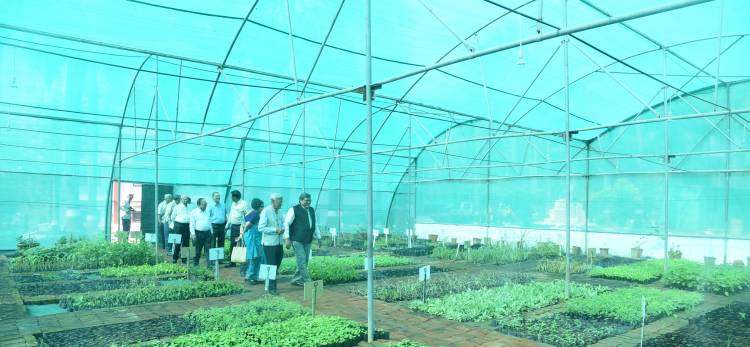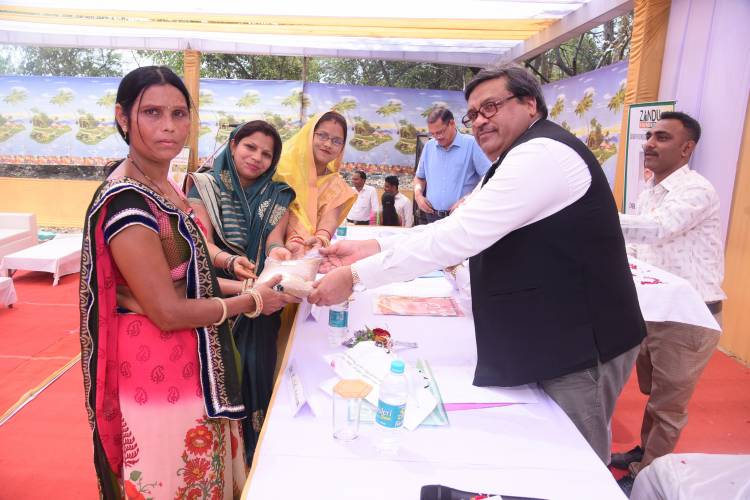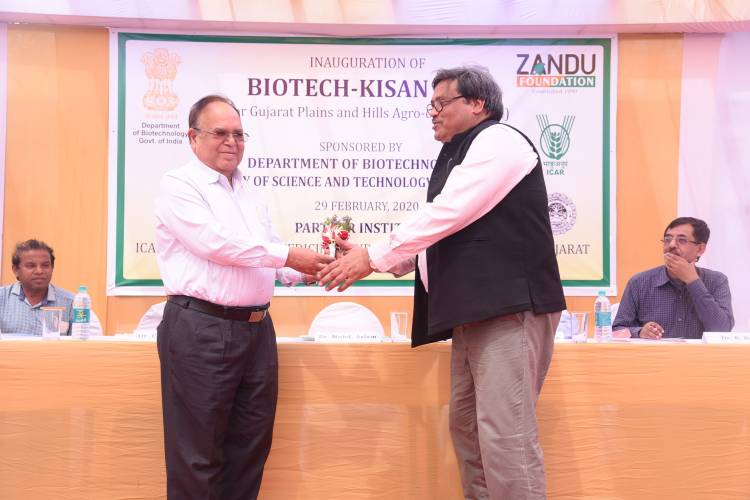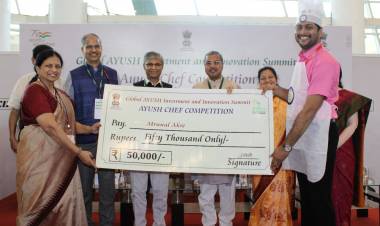Zandu Foundation for Health Care (ZFHC) starts the 1st Biotech-KISAN Hub of Gujarat at Ambach
~ Led by ZFHC, this Project is a part of Department of Biotechnology’s (GoI) novel initiative to promote cultivation of quality medicinal plants in each agro-climatic zone through sustainable use of bio-resources and generate additional income for local farmers~
Zandu Foundation for Health Care (ZFHC) starts the ‘First’ Biotech – KISAN Hub of Gujarat at Ambach.. A part of Department of Biotechnology’s (GoI) novel initiative to promote cultivation of quality medicinal plants through sustainable use of bio-resources and generate additional income for local farmers, this hub has been led by ZFHC in association with Krishi Vigyan Kendra, Ambheti and ICAR-Directorate of Medicinal and Aromatic Plants Research, Anand.
Initially, five therapeutically significant and commercially viable species like Kaunch (Mucuna pruriens), Ashwagandha (Winthania somnifera), Senna (Senna alexandrina), Madhunashni (Gymnema sylvestre) and Brahmi (Bacopa monnieri) have been identified for cultivation by using agro-technology developed by the institutes who are involved in this project.
In an inaugural program recently held at Ambach, attended by more than 300 farmers, planting material of Kaunch, Ashwagandha, Senna, Madhunashni and Brahmi were handed over to select farmers by Dr. Mohd. Aslam, Sr. Advisor, Department of Biotechnology, Ministry of Science and Technology, Govt. of India, the Chief Guest of the occasion. In his inaugural address, Dr Aslam appreciated long term association of DBT with ZFHC and reminded of award
winning success story of improved variety of Kaunch. He expressed his satisfaction at the work done by ZFHC and other partners and hoped that income of farmers would increase as positive outcome of the project besides good quality of raw material supply. The quality planting material, which is experiencing a growing popularity worldwide, is going to be provided to these farmers by ZFHC to ensure the supply of API (Ayurvedic Pharmacopoeia of India) compliant raw material. ZFHC will also mediate to facilitate the buy-back of the raw material cultivated by the farmers. A Green House facility, created by ZFHC to support this venture was also inaugurated. A publication capturing the significant contribution of ZFHC in the area of cultivation of medicinal plants for the last 30 years was also released on the occasion.
Speaking on the newly opened Biotech – KISAN Hub by ZFHC, Dr. C. K. Katiyar, CEO, Technical (R&D), Healthcare Division, Emami Limited said, “We are very proud to see ZFHC successfully leading the project of the very first Biotech- KISAN Hub in Gujarat at Ambach, generating a tremendous response from the local farming community. It was heartening to also see farmers from other zones who are already involved in cultivation of Medicinal Plants through support of ZFHC participating at our inaugural programme to share their experiences and encourage local farmers. Not only medicinal plants, this project also has further scope to expand and include Aromatic plants. The Biotech- KISAN Hub of ZFHC in Gujarat offers superior quality infrastructure that can assure high standards of cultivation, collection and post-harvesting practices. All partners of this Biotech – KISAN Hub - ZFHC, Ambach, ICAR-DMAPR, Anand and KVK, Ambheti are committed to make this project a success so that more farmers can come under its ambit and turn this initiative into a public movement.”
Ayurvedic medicine market is estimated to be around Rs. 15000 crore and more than 90% of the Ayurvedic medicines are made from medicinal and aromatic plants out of which around 78% of the plant material is from non-renewable resources such as root, bark stem and whole herb. This leads to destruction of natural resources. Biotech-KISAN hub is a significant movement initiated by Department of Bio-Technology under the Ministry of Science and Technology, Government of India to promote cultivation of quality medicinal plants in each agro-climatic zone through sustainable use of bio-resources to protect the natural flora and fauna of a cultivation zone. The project also ensures the local farmers to get the benefit of additional income over and above their current earnings through sustainable cultivation measures like using of quality planting material and farming techniques like alternate and intercropping systems.






















